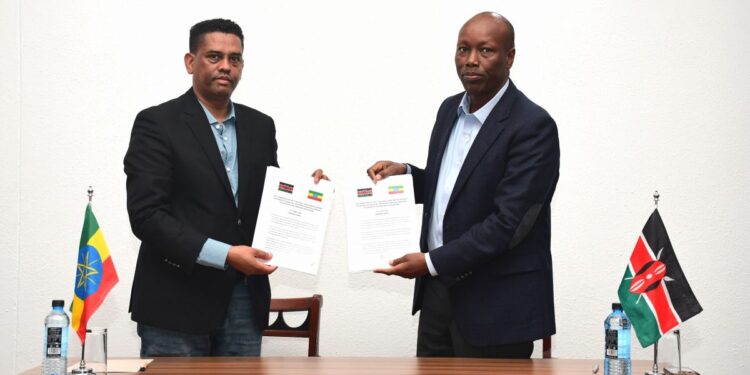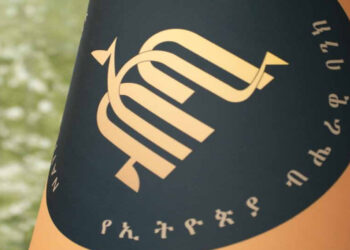Kenya and Ethiopia have officially signed a Memorandum of Understanding (MoU) to enhance collaboration and fast-track the implementation of the African Continental Free Trade Area (AfCFTA) under a Simplified Trade Regime (STR). The agreement aims to boost cross-border trade and foster economic integration between the two neighboring countries.
The bilateral deal was formalized during a high-level meeting in Mombasa, where both governments were represented by senior officials. Kenya’s Cabinet Secretary for Investments, Trade and Industry, Lee Kinyanjui, emphasized the importance of improving trade conditions for communities living along the Kenya-Ethiopia border, particularly in Moyale, where traders have faced persistent challenges.
“We are focused on implementing free trade between our two countries so that goods produced in Kenya or Ethiopia can move freely. This will not only ease cross-border trade but also allow citizens to work and travel across both countries more easily, while boosting key sectors like tourism in Mombasa,” said Kinyanjui.
He assured the public that the Kenyan government is committed to continued engagement with regional partners to create a conducive trading environment. Kinyanjui also highlighted the mutual economic benefits of the partnership, noting that Ethiopia supplies critical goods to Kenya, while Kenya exports finished industrial products valuable to Ethiopia.
He encouraged local entrepreneurs to seize the opportunity created by the agreement, pointing out that investments in infrastructure have already laid the groundwork for smoother regional trade.
Representing Ethiopia, Kassahun Gofe, Minister of Trade and Regional Integration, underscored the urgency of finalizing negotiations and operationalizing the STR to enable accelerated trade, especially for communities near the border.
Kassahun outlined the key outcomes of the talks, which included agreements on border trade areas, trade thresholds, travel frequency, and a harmonized list of tradable goods. Under the new regime, Ethiopia’s border trade zone will extend 50 kilometers from the shared border, while Kenya’s will cover 100 kilometers. The maximum value of goods per trader is set at USD 1,000, with up to four trading trips allowed per month.
“These elements are part of the agreed matrix, and both sides have committed to collaborate on AfCFTA implementation,” said Kassahun, praising the technical teams for their efforts. He added that Ethiopia will now move to initiate and exchange the necessary draft instruments to operationalize the agreement.
The signing marks the culmination of two years of intense negotiations and follows the third bilateral meeting between the two countries on the STR, held in Mombasa.
Kassahun concluded, “Now that the agreement is signed, the real work begins—ensuring implementation and allowing trade to flow based on our consensus.”
Source: Kenya News
Read more on AfCFTA from Soliana’s Article: Global Headwinds Grow, But Africa’s Future Lies in Its Own Grip | StockMarket.et




















